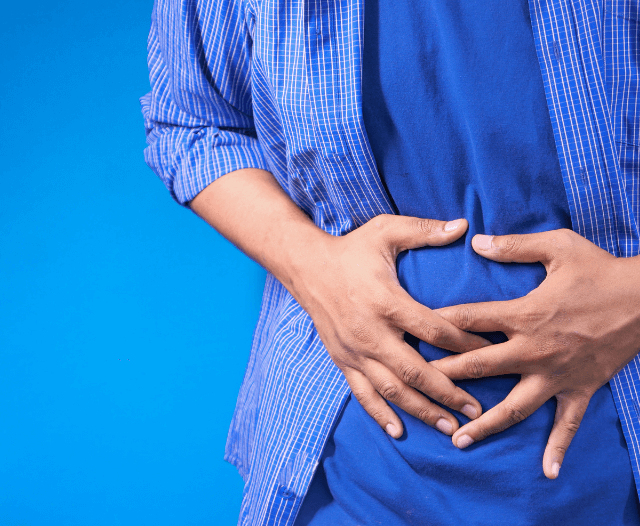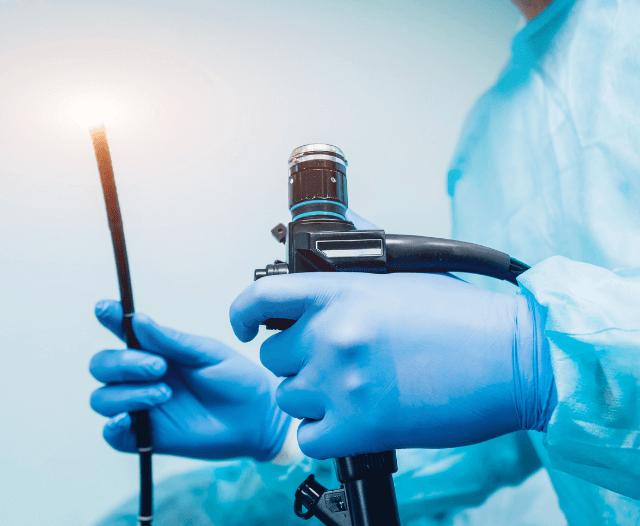When you think of Crohn’s disease, you usually think of a bloated stomach, lack of appetite and cramps.
But did you know there many other symptoms of Crohn’s?
They are all unique, as every person is different. You might not have all or even any of them. It’s important to remember that a symptom you experience doesn’t mean that you have Crohn’s.
If you experience any of the symptoms below, see your healthcare professional.
In this article we discuss everything you need to know about Crohn’s disease and how to live a healthy life despite this disease.
Introduction to Crohn’s Disease?
Crohn’s Disease is a chronic inflammatory bowel disease (IBD) that affects the gastrointestinal tract.
The disease is named after Dr. Burrill Crohn, who first described the condition in 1932. Crohn’s disease is a type of IBD that is marked by inflammation in the lining of the small intestine.
The inflammation can occur in any part of the gastrointestinal tract, from the mouth to the anus, but it is most commonly found in the last section of the small intestine, called the ileum.
People with Crohn’s disease often experience abdominal pain, diarrhea, weight loss, and fever.
The inflammation caused by Crohn’s disease can also lead to the development of ulcers in the digestive tract known as Ulcerative Colitis.
What Are the Symptoms of Crohn’s Disease?
This chronic condition can cause inflammation, pain and other symptoms in different parts of the digestive system.
The most common symptoms of Crohn’s disease include:
- Diarrhea
- Abdominal cramps
- Weight loss
- Fever
- Fatigue
- Bloody Stool
- Mouth Sores
Other possible symptoms include:
- Urgent need to move bowels
- Night sweats
- Loss of appetite
- Joint pain
- Skin lesions
- Inflammation of the liver or bile ducts
- Kidney stones
- Iron deficiency
- Delayed growth in children
Crohn’s disease is a serious condition and can lead to many possible complications, including malnutrition, dehydration, intestinal blockages, and cancer.
Treatment for Crohn’s disease typically involves medications and surgery.
If you are experiencing any of the symptoms of Crohn’s disease, it is important to see a doctor for diagnosis and treatment.

What Are the Causes of Crohn’s Disease?
The cause of Crohn’s disease is unknown, but there are several theories about what may trigger the disease.
Some possible causes of Crohn’s disease include:
Genetic factors: Crohn’s disease may be caused by a combination of environmental and genetic factors. Some people may be more likely to develop Crohn’s disease because they inherit genes that make them more susceptible to the disease.
Bacterial infection: It is possible that a bacterial infection may trigger Crohn’s disease. The bacteria may enter the gastrointestinal tract through the mouth or nose and cause inflammation and damage to the intestinal lining.
Smoking: Cigarette smoking could double your risk of Crohn’s disease.
Diagnosing Crohn’s Disease
To diagnose Crohn’s disease, doctors take a medical history and perform a physical exam. They may order blood tests, stool tests, a sigmoidoscopy, or a colonoscopy.
Additionally, they may also use a device called a capsule endoscopy, which is a pill that takes a picture of the small intestine.
The three most common ways to diagnose Crohn’s disease are discussed below.
Blood Test – Blood tests are one of the most used testing methods for diagnosing Crohn’s disease. Doctors can use blood samples to check for signs of infection in your blood. If you have an increased level of white blood cells in your blood, it may be a sign of infection or inflammation in your body.
Stool Test – Your doctor might want to order a stool test to check if you have blood in your stool. To have blood in your stool is normally a sign that you have digestive problems such as Crohn’s disease.
Sigmoidoscopy – A sigmoidoscopy is a procedure to examine the inside of the rectum and sigmoid colon. A sigmoidoscope is inserted into the rectum and advanced into the sigmoid colon. This allows the doctor to view the lining of the rectum and sigmoid colon and to detect any abnormalities.
Colonoscopy – A colonoscopy is a screening test for colon cancer. It is a procedure in which a thin, flexible tube with a light and camera on the end is inserted through the anus and passed through the rectum and into the colon. The test is used to look for polyps, which are small growths on the lining of the colon that can become cancerous.
Capsule Endoscopy – Capsule endoscopy is a diagnostic test that uses a small camera to take pictures of the inside of your small intestine. This test is used to help diagnose problems in the small intestine, such as Crohn’s disease, celiac disease, and tumors.

What Is the Treatment for Crohn’s Disease?
There is no known cure for Crohn’s disease, but there are treatments that can help lessen the symptoms.
Treatment may include medication, diet and lifestyle changes, and surgery.
Food Preparation and Meal Planning
Although everyone is different and no one-size-fits-all when it comes to food, these tips can help you find your rhythm and guide you to a better daily nutrition.
- Eat 4 – 6 small meals per day
- Drink enough liquids such as water, broth, tomato juice
- Prepare your meals in advance
- Use simple technique when cooking like boil, grill, steam or poach. Try not to deep fry and techniques using a lot of oil or butter.
- Use a food journal to keep track of what you eat and when you experience Crohn’s symptoms.
What Are the Possible Complications of Crohn’s Disease?
Some of the most common complications include:
– Inflammation of the joints, skin, or eyes
– Rectal bleeding
– Ulcers in the intestine
– Swelling of the intestinal wall
– Structures or narrowing of the intestine
– Malabsorption of nutrients
– Abscesses
– Inflammation of the pouch created by surgery to treat Crohn’s Disease
– Cancer of the intestine
It is important for people with Crohn’s disease to be aware of the potential complications and take steps to prevent them from occurring.
The Relationship of Diet and Crohn’s Disease
There is no one food that Crohn’s disease patients must avoid, but there are some general dietary guidelines that can be helpful.
Patients with Crohn’s disease should aim to eat a balanced diet that includes plenty of fruits, vegetables, and whole grains.
It’s important to avoid foods that are high in fat and sugar, as these can aggravate symptoms.
Some specific foods that may be troublesome for Crohn’s patients include nuts, seeds, cruciferous vegetables (like broccoli and cauliflower), and dairy products.
It’s also important to drink plenty of fluids, especially water, as dehydration can aggravate symptoms. Some patients find that drinking caffeine or alcohol can worsen symptoms.
It is important to listen to your body and take note of the reaction your body shows after consuming some foods.

Conclusion
If you are worried about Crohn’s there are some easy steps to take to improve your condition, regardless of what your specific diagnosis is.
These follow-up measures include taking good care of yourself; eating a healthy diet; avoiding alcohol; controlling stress through exercise, meditation or yoga; and using probiotics to improve gut health.
For any additional information regarding Crohn’s disease, it’s best to find a trusted and experienced Gastroenterologist who can answer your questions clearly, recommend appropriate solutions, and perform tests with precision and expertise.
Dr. Deetlefs has earned the reputation of a trusted health expert providing consultative, diagnostic, and therapeutic endoscopic and related services to patients in Cape Town and beyond.
Dr. Deetlefs can be contacted to confirm the estimated breakdown should you be interested in having the procedure done.
DISCLAIMER: PLEASE READ CAREFULLY
The information on this website is to provide general guidance. In no way does any of the information provided reflect definitive medical advice and self-diagnoses should not be made based on information obtained online. It is important to consult a Gastroenterologist or medical doctor regarding ANY and ALL symptoms or signs including, but not limited to: abdominal pain, haemorrhoids or anal / rectal bleeding as it may a sign of a serious illness or condition. A thorough consultation and examination should ALWAYS be performed for an accurate diagnosis and treatment plan. Be sure to call a physician or call our office today and schedule a consultation.
© Dr. Eduan Deetlefs, Registered Gastroenterologist, GI Doc Cape Town
Our website information is not intended or implied to be a substitute for professional medical advice, diagnosis or treatment. Please consult a doctor about your specific condition. Only a trained physician can determine an accurate diagnosis and proper treatment.

 When you think of Crohn’s disease, you usually think of a bloated stomach, lack of appetite and cramps.
When you think of Crohn’s disease, you usually think of a bloated stomach, lack of appetite and cramps.
